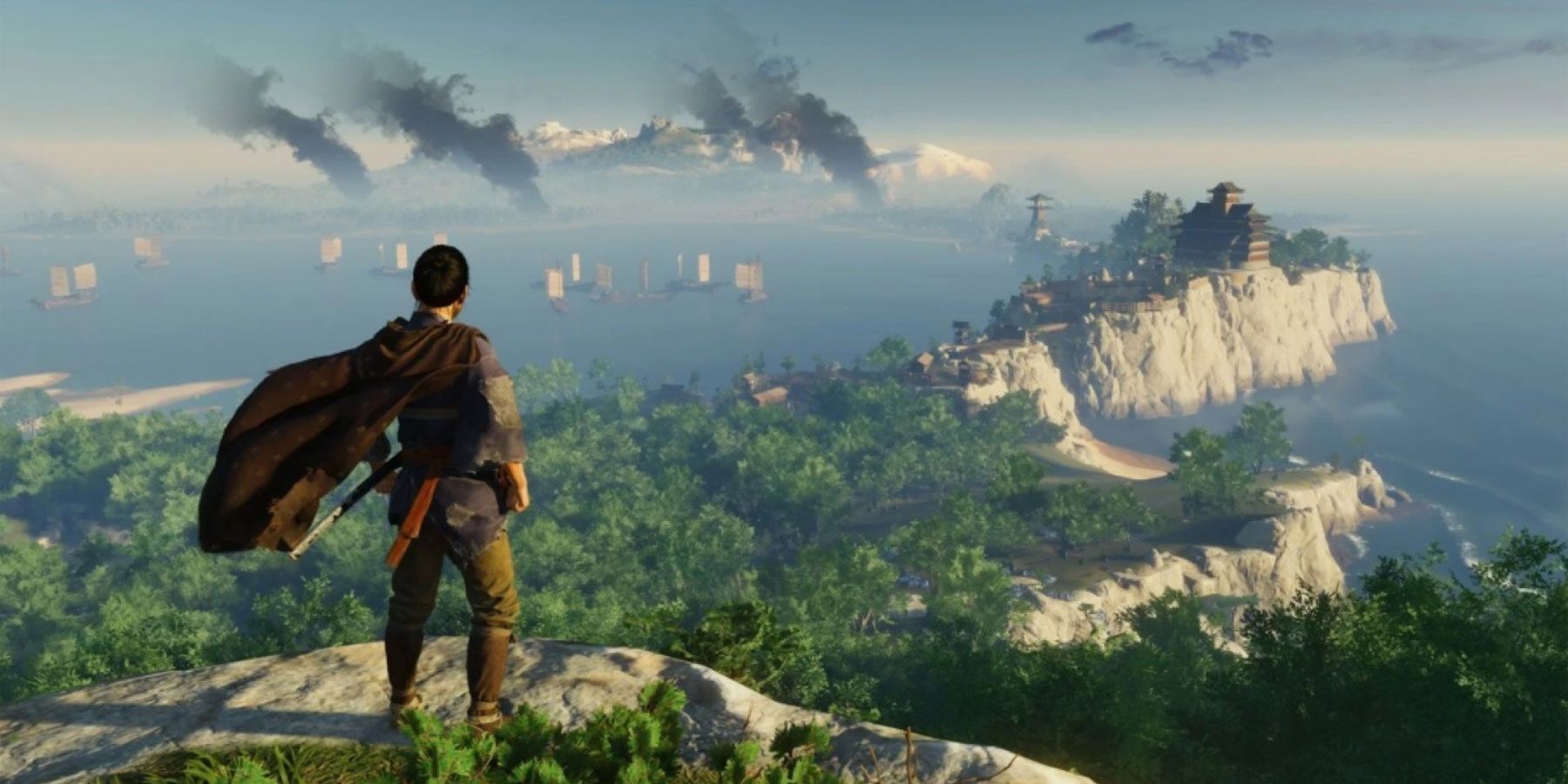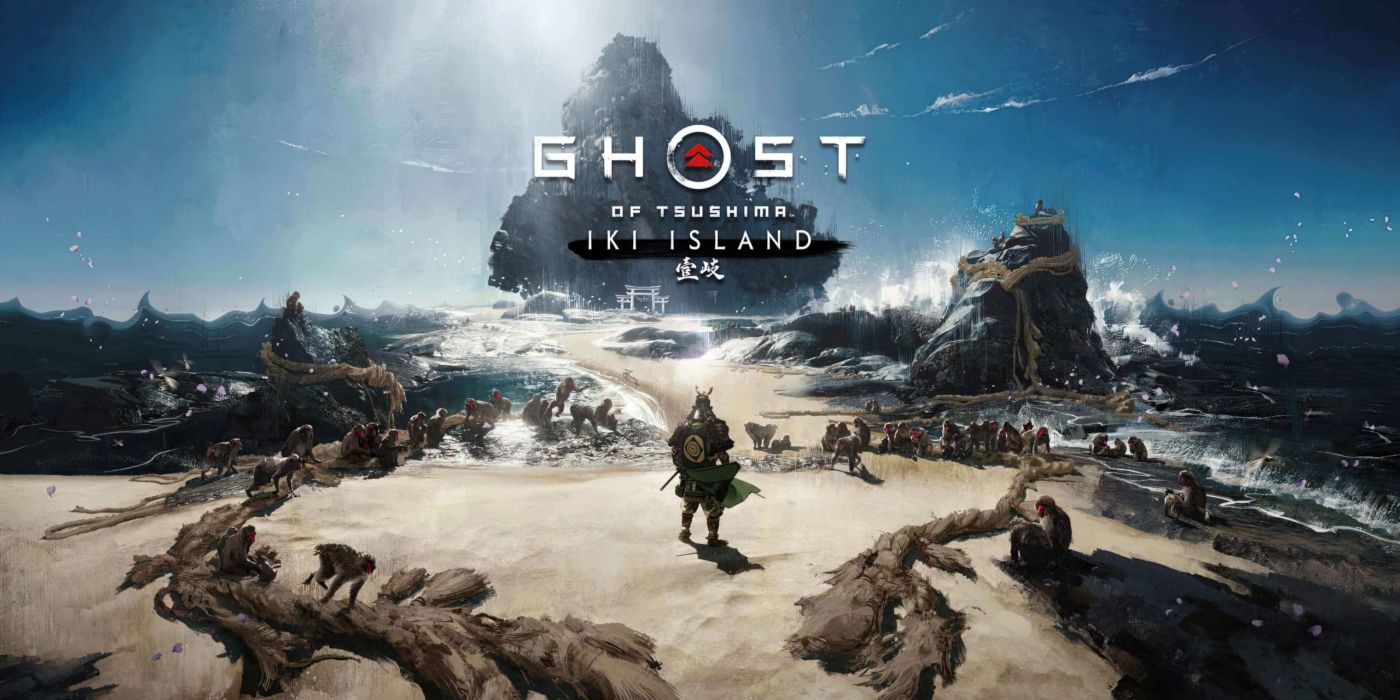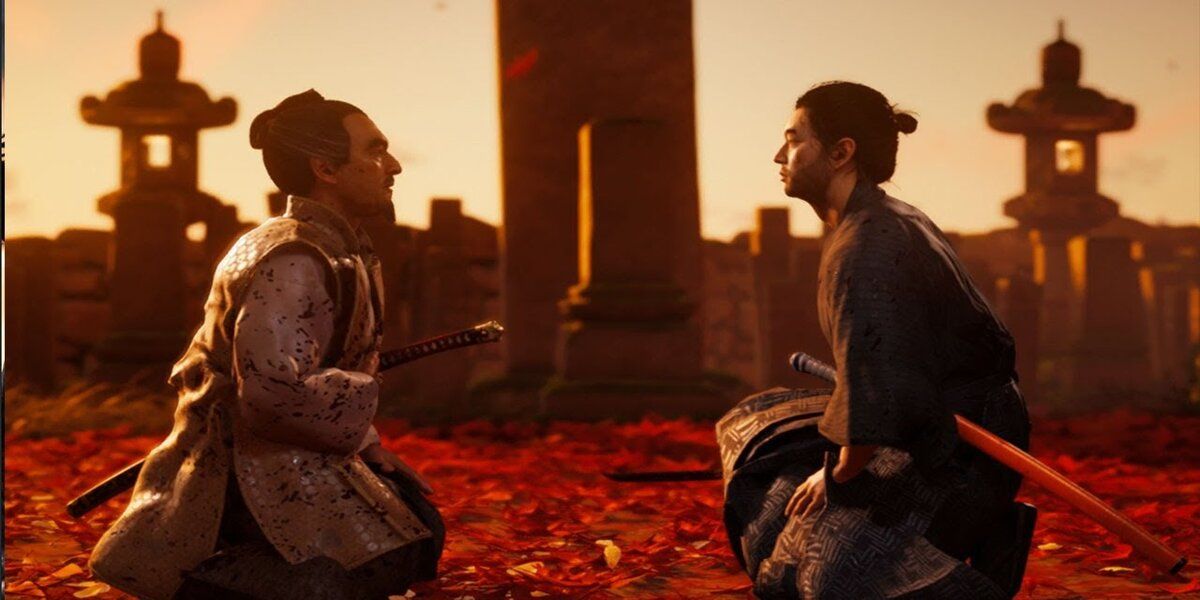Pretty soon after its release, fans discovered that Ghost of Tsushima: Director's Cut was the definitive way to play the game, especially for those playing on a PlayStation 5. The updated graphics, performance, and its use of the PS5's exclusive features make the experience the best it can possibly be. The big draw of the Director's Cut, however, was the new Iki Island DLC expansion that adds another playable area to the game, along with another adventure for Jin to embark on.
While the quality of Ghost of Tsushima: Director's Cut can't be understated, unfortunately, the Iki Island DLC features some of the weakest storytelling in the entire game. It isn't offensively bad or poorly written in the moment-to-moment dialogue, but it's simply generic and forgettable. As far as video game stories go, the main Iki Island quest isn't even horrible, but when contrasted with the memorable moments, characters, and endings of the base game, Iki Island feels like a narrative misstep for a game that, otherwise, gets so much right.
This article contains spoilers for Ghost of Tsushima and its DLC expansion.
Ghost of Tsushima's Iki Island DLC Never Makes Good on its Premise
One of the most disappointing parts of the Iki Island DLC is that its premise is really solid: Jin journeys to Iki to defeat another faction of Mongols, while he reckons with the actions his father took to become known as the Butcher of Iki before he was killed there. The game promises to provide introspection into Jin's relationship with his father and how, despite Jin's young age at the time, he didn't agree with his father's violent actions on the island.
However, it never delivers on providing true introspection into either. The story rarely provides concrete details on what actually happened on Iki island that lead to Kazumasa Sakai and his clan of samurai intervening. However, the story does make it clear that the Sakai clan wasn't necessarily in the right, and did plenty of horrific violent actions to civilians in the name of a greater good.
The people of Iki are all clearly traumatized by the Sakai clan and remnants of its violent past can be seen all over the island. Anytime anyone brings it up to Jin, he becomes incredibly defensive of his father's actions, despite Jin's own strong moral compass and ability to see that Kazumasa wasn't doing the right thing in flashbacks. During his time on the island, Jin doesn't ever gain the ability to empathize with those whom the Sakai clan traumatized all those years ago. Instead, he grows increasingly hostile to anyone who questions Kazumasa, even when discussing a massacre of civilians that the Sakai's carried out during a key point in the narrative.
Towards the end of the story, Jin discovers that he's been working side-by-side with his father's killer, Tenzo, and the narrative hinges on whether or not Jin will kill him or find forgiveness. The problem with that central question is that anyone who's played through the entirety of Ghost of Tsushima knows that Jin is unwilling to compromise when faced with people with who he disagrees on a fundamental moral level, in this instance his father. While he might certainly begrudge Tenzo for killing Kazumasa, all other signs of Jin's character point towards him being able to recognize his perceived error in his father, just as he does with Lord Shimura in the main game.
The problem with the Iki Island DLC is that it feels disconnected from Jin Sakai and his arc in the main game. It never asks Jin to make any sort of difficult choices in the ways that the original story does over and over again, meaning that nothing concrete is really added to Jin's character other than a little bit more context about his family's lineage and legacy.
The Contrast Between the Eagle and Khoto Khan
The villain of the Iki Island DLC, the Eagle, doesn't force Jin to confront anything about himself in the way that Khoto Khan does in the main story. The entire conceit of Ghost of Tsushima revolves around Jin, a samurai, needing to decide if abandoning his honor is worth it if it means that he can save his people and defeat the Mongol invaders. Khoto Khan, the Mongol leader, is an embodiment of that centralized question and all of the challenges that Jin has to overcome both externally and internally are a direct result of Jin's understanding that he needs to kill the Khan.
The Eagle, on the other hand, doesn't do anything like that. Instead, the Eagle is a forgettable villain who's the antagonist for the simple reason that she loves being evil and has no relationship to Jin, Iki Island, or the Sakai clan. Other than the fact that she's a part of the Mongol invasion, Jin has no real reason to have any conflict with her.
The only reason that she knows about Jin's complicated relationship with Iki Island is because she poisoned him and he talked about it. In terms of a centralized conflict of ideals between Jin and a villain, Khoto Khan has a real relationship with Jin even though they don't speak outside of battle at all, while Jin and the Eagle have absolutely nothing connecting them.
At the core of Ghost of Tsushima, however, isn't a villain, it's a conflict of honor between Jin and Lord Shimura, making the villain's push to turn Jin into the Ghost even more layered. The culmination of that element is a fight to the death between the two men, two people who have no desire to fight, however, they must defend their principles despite their familial relationship.
The Iki Island story attempted to include that same kind of internal conflict between Jin and his father. However, Jin clearly had an estranged relationship from Kazumasa that ended with the two not understanding each other and not having any sort of real emotional attachment outside of the surface level connection that Kazumasa was Jin's father.
The conflict that was introduced seemed to revolve around the morality of Kazumasa's actions, however, Jin doesn't express any complicated emotions over them. Instead, he blindly defends his father's indefensible actions for no apparent reason. His defense of Kazumasa is even more puzzling given the fact that Jin was willing to question them when he was young as showcased in flashbacks. However, there aren't any layers of narrative complexity present outside of that.
At the end of the day, Ghost of Tsushima's Iki Island DLC is still worth picking up for fans of the original. Unfortunately, it fails to deliver the same kind of emotionally charged narrative that's present in the original story. The most frustrating part of it comes from the fact that elements for a great story about Jin and his past are certainly there, but the narrative never makes good on its promises to dive deeper into Jin's character and the conflicts within him.
Ghost of Tsushima: Director's Cut is available now for PS4 and PS5.



